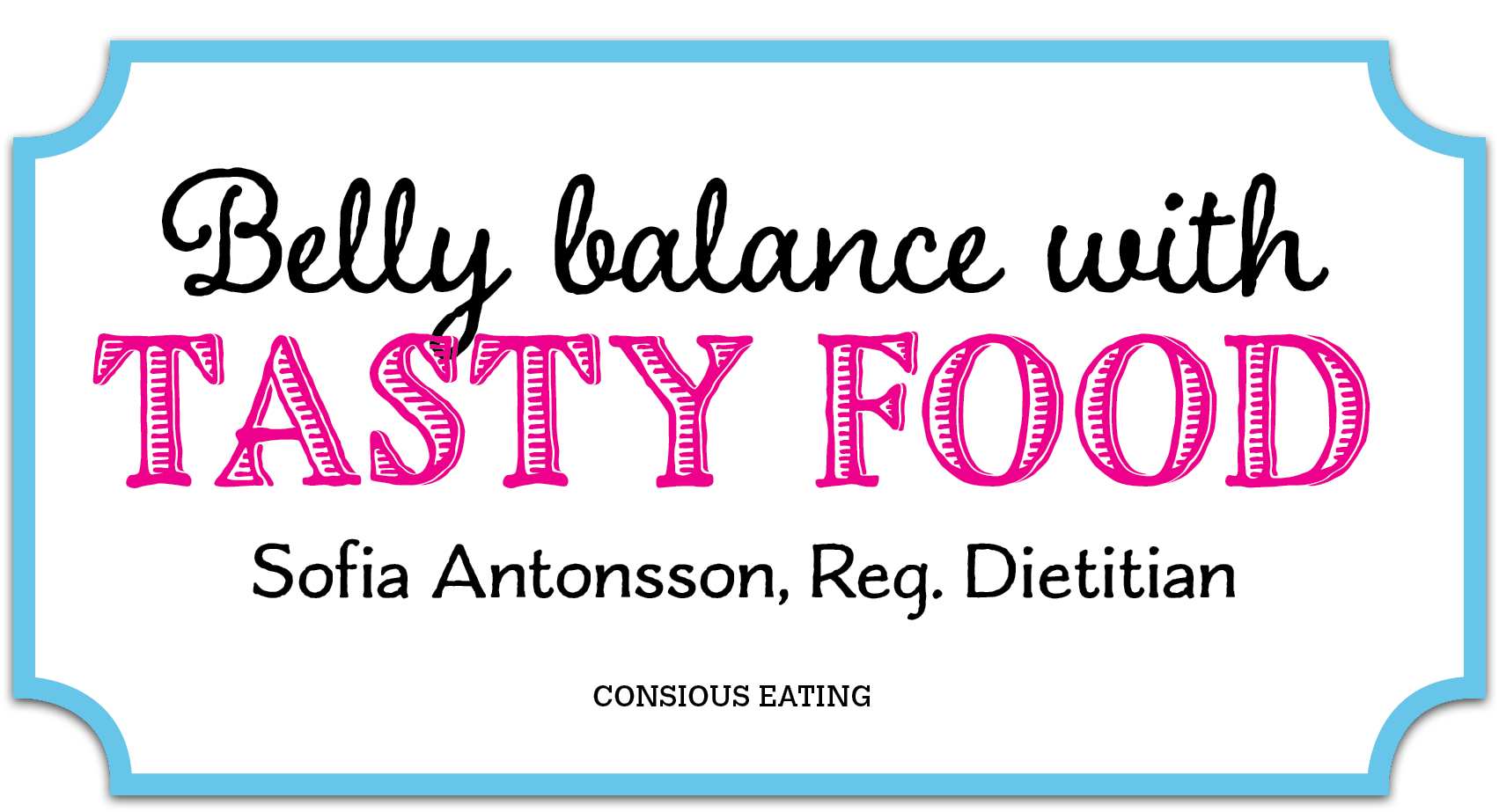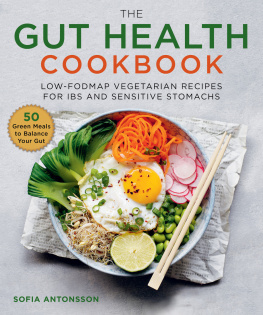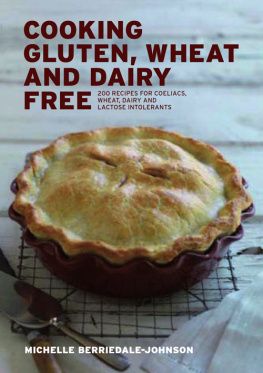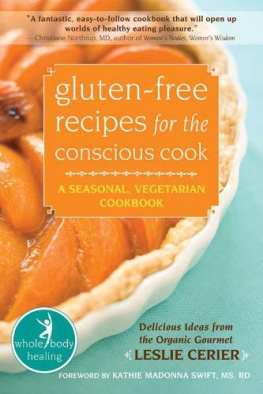Antonsson - Belly balance with tasty food-
Here you can read online Antonsson - Belly balance with tasty food- full text of the book (entire story) in english for free. Download pdf and epub, get meaning, cover and reviews about this ebook. year: 2015, publisher: Sofia Antonsson, genre: Home and family. Description of the work, (preface) as well as reviews are available. Best literature library LitArk.com created for fans of good reading and offers a wide selection of genres:
Romance novel
Science fiction
Adventure
Detective
Science
History
Home and family
Prose
Art
Politics
Computer
Non-fiction
Religion
Business
Children
Humor
Choose a favorite category and find really read worthwhile books. Enjoy immersion in the world of imagination, feel the emotions of the characters or learn something new for yourself, make an fascinating discovery.
- Book:Belly balance with tasty food-
- Author:
- Publisher:Sofia Antonsson
- Genre:
- Year:2015
- Rating:3 / 5
- Favourites:Add to favourites
- Your mark:
- 60
- 1
- 2
- 3
- 4
- 5
Belly balance with tasty food-: summary, description and annotation
We offer to read an annotation, description, summary or preface (depends on what the author of the book "Belly balance with tasty food-" wrote himself). If you haven't found the necessary information about the book — write in the comments, we will try to find it.
Antonsson: author's other books
Who wrote Belly balance with tasty food-? Find out the surname, the name of the author of the book and a list of all author's works by series.
Belly balance with tasty food- — read online for free the complete book (whole text) full work
Below is the text of the book, divided by pages. System saving the place of the last page read, allows you to conveniently read the book "Belly balance with tasty food-" online for free, without having to search again every time where you left off. Put a bookmark, and you can go to the page where you finished reading at any time.
Font size:
Interval:
Bookmark:

2015 Sofia Antonsson
ibsfri.se
Published: Consious eating
Photos: Pontus Johansson
Food Stylist: Sophie Ekman
Graphic Design: sa Nilsson at Ruby Melt
Editing and Recipe Review:
Anna Sjgren and Ellinor Jidenius
ISBN: 978-91-87941-52-8

Welcome!
Until about four years ago, I, like most other dietitians, provided some pretty shoddy advice to people with IBS (Irritable Bowel Syndrome). The idea was to adjust the amount of fiber, learn to live with the symptoms, remove the I feel bad syndrome and so forth. Then I discovered the dietary treatment, FODMAP, and everything changed.
I myself have IBS and when I tried FODMAP I was sold immediately. Suddenly I had access to an effective treatment plan that most people responded to positively. IBS became interesting for real. So interesting in fact that during the last few years I have met and treated nearly 3,000 IBS patients in Sweden.
People who were treated with FODMAP kept asking me where they could find recipes. And finally, here it is, the cookbook for those who want to cook good food with FODMAP. The treatment involves a major shift in the diet and many new concepts and foods to relate to, these are also explained in the book. All recipes are free from onions, garlic, gluten and lactose. Many of the recipes come from patients who, with great enthusiasm, cook, bake and share the results.
The book is a guide for anyone that has IBS. It is also for those of you that have someone close to you, such as a spouse, friend, grandchild or work colleague, who is affected. In the book I explain what IBS is and why we suffer. Although research exists in the field it does not present the entire picture. Therefore, I have sometimes based reasoning and conclusions on my own and my patients experiences. It is, however, not always an exact science.
I love working with IBS and it is my patients that make it so much fun. Seeing the results and getting so much positive response, is to me proof that FODMAP works. However, always seek help and advice from a dietitian before you undergo any dietary treatment plan. This will allow you to get it right from the beginning.
I wish you all the best on your way to a calm and happy belly!
Sofia Antonsson
Registered Dietitian
ABOUT IBS & FODMAP
What is IBS?
IBS (Irritable Bowel Syndrome) is also known as spastic or irritable colon. Central to the disease is that the intestinal motor function is disturbed causing the muscles of the colon to work too fast, too slow or otherwise not normally. This creates problems with bowel movements and gas transport that can lead to various uncomfortable symptoms. People with IBS experience increased pain in the intestines and also send more signals to the brain from the stomach than other people. Intestinal flora can be altered and there is often a low-grade inflammation in the intestinal mucosa. IBS is not dangerous and does not increase the risk of other diseases. The same symptoms can also occur in conjunction with other diseases such as Crohns disease, Ulcerative Colitis or Celiac disease (gluten intolerance). Some feel that IBS goes into relapse (recurrent episodes) and is often related to stress, or to a state with constant symptoms. There is currently no knowledge regarding if the disease is chronic, or if one can be cured. It is estimated that 15-20% of the population worldwide suffers from IBS.
Women are over represented which may be due to several factors. Perhaps women have more commitments than men, perhaps women do not handle stress as well as men, maybe men are more tolerant to stomach upset? There is no exact answer to these questions because there is no existing science; it is, however, interesting to ponder. IBS is also sometimes known as good-girl syndrome because it often affects high-performing women with high demands on themselves and significant control needs. This type of person will typically write to-do lists to themselves, are efficient, have trouble saying no and tend to take on more than they really can comfortably manage. The above attributes can create an internal stress which is an appreciable factor in the overall disease profile. Treatment of IBS also focuses on stress management, relaxation and breathing. It varies by individual how much of the symptoms are diet-and stress-related. It can be expected that some people will rapidly respond favorably with the FODMAP diet while it may take longer for others who have stronger stress factors.
What causes IBS?
Although there has been a lot of research regarding IBS it is not known what causes the disease. IBS is considered a disease in which several different factors together contribute to the disorder. These include psychosocial factors, changes in the function of the intestinal tracts own muscles and nerves along with the interaction with the nerves to and from the brain. Why people get IBS is still not clear. Some people say that they have had stomach problems as long as they can remember. Many start having their problems when they are in their 20s, after a stomach bug or a period of extreme stress.
The heredity factor is unknown, but it is not unusual to see mothers and their children suffering the same symptoms. Currently, it is also relatively certain that the muscles of the diaphragm are involved, especially when bloating is present. Therefore, it is particularly important to breathe properly, deep down from the diaphragm. Unfortunately, the ever-increasing levels of stress in society can increase the pressure on the sympathetic nervous system, also known as fight or flight. When it is enabled, breathing becomes shallow and advances to the chest area. At the same time the risk of worry, anxiety and negative thoughts increases, which in itself generates additional stress levels. Having a stomach that is not working properly can affect the social and family life as well as work. Many people refrain from certain activities because they do not know how their stomachs will react. It is not always acceptable to talk about ones stomach and it can lead to a reduced understanding from the surroundings.
Diagnosis
IBS is classified according to stool pattern as IBS-D (diarrhea-dominated), IBS-C (constipation-dominated) or IBS-M with mixed stool patterns. There are criteria for the diagnosis of IBS. Most commonly it is diagnosed after testing for lactose and gluten, and possible examination procedures of the intestines, so called gastro or colonoscopy. Certain medical doctors diagnose without testing. However, it is important to rule out the inflammatory bowel diseases, Crohns and ulcerative colitis. Colonoscopy is primarily important for those with alarm symptoms such as fever, blood in the stool and involuntary weight loss. These symptoms are not associated with IBS and should be investigated further before treatment. It is not necessary to have been diagnosed before trying low-FODMAP treatment. If you are however worried about gluten intolerance, the test should be conducted before starting a gluten free diet because the test will not be reliable otherwise.
Symptoms
The main symptoms of IBS are pain or discomfort associated with altered bowel movement with patterns of diarrhea, constipation or alternating bowel movement patterns. Other symptoms include bloating, gas, incomplete bowel movements, aches, rumbling noise and cramps.
Many feel that they go to the toilet, but have not completed, and have to go again after a while. Some feel that the pain is on the right or left side just below the rib where the colon turns. Some experience concurrent symptoms in the upper gastrointestinal tract, such as reflux, heartburn or nausea. This may be associated with IBS when gas and bloating causes upward pressure affecting the symptoms. In many cases even these symptoms subside with a low FODMAP diet. Diffuse symptoms such as sleep problems, lethargy and palpitations may also occur. Some reflexes in the intestine are greatly enhanced in people with IBS, which means that the stomach responds extra strongly to food intake. We know, for example, that the emptying reflex can be activated by the smell of coffee, which means it probably also reacts to whats going down into the stomach. These reflexes determine how long it takes before one experiences the symptoms. Some feel that the bowels start working immediately after food intake. If one has the diarrhea dominated IBS the symptoms will usually occur immediately, sometimes in the middle of a meal, while those with constipation dominated IBS can experience more protracted symptoms, and it may take several days before the food is passed. Women report that symptoms are often associated with their position in the menstrual cycle. The reason for this is still unexplored, but many experience increased symptoms associated with ovulation and before and during menses.
Font size:
Interval:
Bookmark:
Similar books «Belly balance with tasty food-»
Look at similar books to Belly balance with tasty food-. We have selected literature similar in name and meaning in the hope of providing readers with more options to find new, interesting, not yet read works.
Discussion, reviews of the book Belly balance with tasty food- and just readers' own opinions. Leave your comments, write what you think about the work, its meaning or the main characters. Specify what exactly you liked and what you didn't like, and why you think so.









